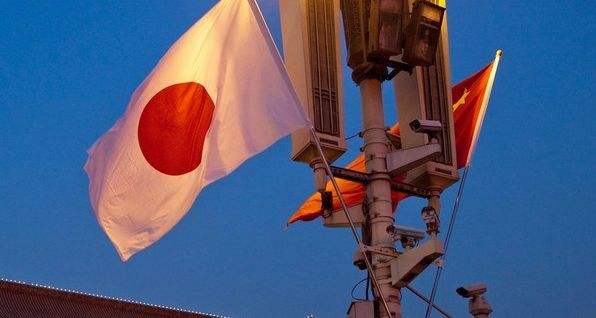

 |
| File photo |
Recent remarks from Japanese officials appeared to indicate a willingness to move forward with China-initiated development proposals, yet many are adopting a wait-and-see attitude, hoping that Japan can first solve the problem of tense bilateral ties.
During a meeting with Chinese President Xi Jinping, speaking as a representative of the Japanese government, Liberal Democratic Party (LDP) Secretary-General Toshihiro Nikai said Japan and China need to cooperate. Xi said that Japan has clearly endorsed the Belt and Road Initiative, and is welcome to talk with China about cooperating within its framework, China Daily reported.
Nikai later told reporters that the key would be how quickly Japan decides whether to participate, Reuters reported.
As a major political figure in Prime Minister Shinzo Abe’s LDP, Nikai’s comments received careful attention, as they were thought to offer clues into whether Japan is changing its attitude toward China’s proposals.
Japan had previously shown reluctance to get involved in China's Belt and Road Initiative, and only recently decided to send a delegation to the forum. Japan and the U.S. are the only G7 members not to have signed up for the Asian Infrastructure Investment Bank (AIIB), the Global Times reported.
According to Sankei Shimbun, former Japanese Prime Pinister Yukio Hatoyama took to Twitter to say that the Belt and Road Initiative "eyes peace and prosperity," and that he feels "Japan is somehow lagging behind.”
Japan has undoubtedly been facing serious socioeconomic issues, and a vast market overseas can support its economic development in the coming decades. This market can mainly be found in rising powers and third-world countries, since the European economy is witnessing unsatisfying growth and the U.S. will be challenged to maintain rapid growth, Xiakedao, a WeChat news account run by the People’s Daily, pointed out.
All this has forced Japan to rely on regional projects like the Trans-Pacific Partnership (TPP) to integrate resources in the Asia Pacific, the commentary in Xiakedao explained, adding that Japan’s persistent conflicts with China have also prevented it from enjoying the development offered by China’s proposals.
Prior to Nikai’s comments, Abe has previously said that he could be open to joining the AIIB, if only questions surrounding the environmental impact of its projects and a few other issues were resolved, Kyodo News reported.
What lies beneath Abe’s statement is doubt and concern that AIIB may become a tool for China’s economic expansion, yet Japan cannot deny what it has been missing over the past months, as AIIB has grown into a 77-member international body and the TPP has fallen apart, the commentary stated.
Remarks by Japanese officials have indicated the country’s unwillingness to miss out on more of the benefits to be gained from Asian infrastructure development. The remarks also indicate a possible intention by Japan to cast more influence over the AIIB, even though it could not enjoy the rights of a founding member, according to the commentary.
Lü Yaodong, a Japanese diplomacy researcher at the Chinese Academy of Social Sciences, said that being part of the initiative and the bank would help Japan to improve its ties with China, though it remains to be seen whether Japan will take further action in that regard, China Daily reported.
Both countries should think deeply about the problems underlying their strained ties, and take measures to change the situation. Many in China hope that Japan will work with China to eliminate such disturbances and promote the positive development of Sino-Japanese relations, Xi said during the meeting with Nikai.
“What we would like to know is whether Japan is completely changing its strategy of confronting China, or if it is merely a strategic easing. We would definitely offer a warm welcome in the first case; in the second, we show welcome and also regret,” the commentary read.
 Fire brigade in Shanghai holds group wedding
Fire brigade in Shanghai holds group wedding Tourists enjoy ice sculptures in Datan Town, north China
Tourists enjoy ice sculptures in Datan Town, north China Sunset scenery of Dayan Pagoda in Xi'an
Sunset scenery of Dayan Pagoda in Xi'an Tourists have fun at scenic spot in Nanlong Town, NW China
Tourists have fun at scenic spot in Nanlong Town, NW China Harbin attracts tourists by making best use of ice in winter
Harbin attracts tourists by making best use of ice in winter In pics: FIS Alpine Ski Women's World Cup Slalom
In pics: FIS Alpine Ski Women's World Cup Slalom Black-necked cranes rest at reservoir in Lhunzhub County, Lhasa
Black-necked cranes rest at reservoir in Lhunzhub County, Lhasa China's FAST telescope will be available to foreign scientists in April
China's FAST telescope will be available to foreign scientists in April "She power" plays indispensable role in poverty alleviation
"She power" plays indispensable role in poverty alleviation Top 10 world news events of People's Daily in 2020
Top 10 world news events of People's Daily in 2020 Top 10 China news events of People's Daily in 2020
Top 10 China news events of People's Daily in 2020 Top 10 media buzzwords of 2020
Top 10 media buzzwords of 2020 Year-ender:10 major tourism stories of 2020
Year-ender:10 major tourism stories of 2020 No interference in Venezuelan issues
No interference in Venezuelan issues
 Biz prepares for trade spat
Biz prepares for trade spat
 Broadcasting Continent
Broadcasting Continent Australia wins Chinese CEOs as US loses
Australia wins Chinese CEOs as US loses